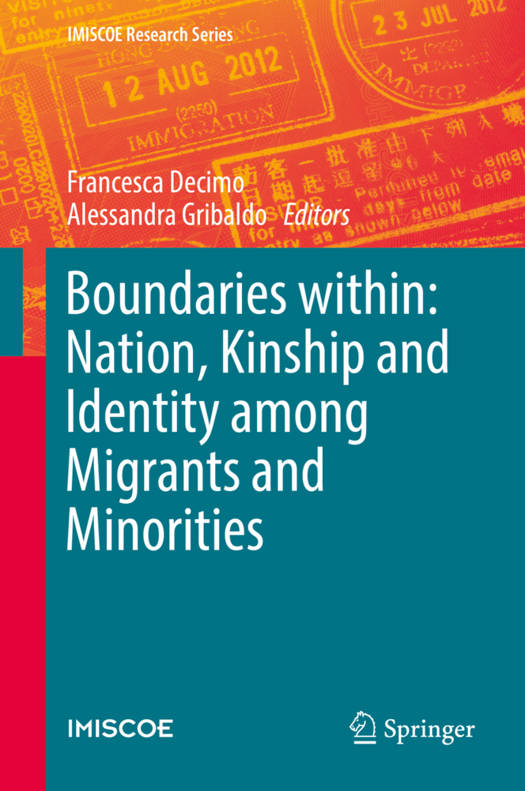
- Retrait gratuit dans votre magasin Club
- 7.000.000 titres dans notre catalogue
- Payer en toute sécurité
- Toujours un magasin près de chez vous
- Retrait gratuit dans votre magasin Club
- 7.000.0000 titres dans notre catalogue
- Payer en toute sécurité
- Toujours un magasin près de chez vous
Boundaries Within: Nation, Kinship and Identity Among Migrants and Minorities
Description
This volume investigates the relationship between migration, identity, kinship and population. It uncovers the institutional practices of categorization as well as the conducts and the ethics adopted by social actors that create divisions between citizens and non-citizens, migrants and their descendants inside national borders. The essays provide multiple empirical analyses that capture the range of politics, debates, regulations, and documents through which the us/them distinction comes to be constructed and reconstructed. At the same time, the authors reveal how this distinction is experienced, reinterpreted, and reproduced by those directly affected by governmental actions. This perspective grants equal attention to both the logics of national governmentality and the myriad ways that individuals and collectivities entangle with categories of identity. Featuring case studies from countries as varied as the Netherlands; French Guiana; South-Tyrol; Eritrea and Ethiopia; New York City; Italy; and Liangshan, China, this book offers unique insights into the production of identity boundaries in the contested terrain of migration and minorities. It outlines how the process of producing national identity is enacted not only through impositions from above, but also when individuals themselves embody and deploy identities and kinship bonds. More so than lines of division, boundaries within are understood as an ongoing process of identity construction and social exclusion taking place among the various actors, levels, and spaces that make up the national fabric.
Spécifications
Parties prenantes
- Editeur:
Contenu
- Nombre de pages :
- 209
- Langue:
- Anglais
- Collection :
Caractéristiques
- EAN:
- 9783319533292
- Date de parution :
- 27-04-17
- Format:
- Livre relié
- Format numérique:
- Genaaid
- Dimensions :
- 156 mm x 234 mm
- Poids :
- 480 g

Les avis
Nous publions uniquement les avis qui respectent les conditions requises. Consultez nos conditions pour les avis.





